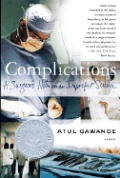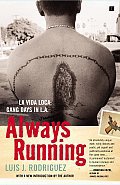
As I have mentioned before, I often do not like "good" books, which is to say, books that are well-reviewed in the
New York Times and
Atlantic Monthly, and generally latched onto by well-educated, bookish members of the upper and upper-middle classes. Zadie Smith. Nicole Krauss. Ian McEwan. Writers who make people tilt their heads to one side, furrow their eyebrows, nod, and make contemplative little 'mmmm' sounds. There has been some talk about this kind of writer over at
Ang's blog.
And actually, that comment thread is the reason I'm writing this. It was just too oddly timed. I started this post a few days ago, the purpose being to write about the problems I had with Joan Didion's latest book,
The Year of Magical Thinking. If you're not familiar with the book, it is a memoir of the time during which Didion's daughter is critically ill and lying in a coma. After returning from the hospital one night, her husband of nearly 40 years, John Gregory Dunne, has a heart attack and dies. It is tragic and heartbreaking, and it is a memoir of Didion's grief.
I've always liked Didion's writing. Everything she describes just sounds beautifully scorched and wasted. She is a precise and brutally honest writer. However, reading about the grieving process of a member of the intellectual and economic elite, I realized, is a jarring and oddly unsympathetic endeavor.
Right after I started to write about it, I read an interview with Didion from the
L.A. Times, printed shortly after the book's publication. During this time, Didion's daughter had relapsed and died at the age of 39. Didion was frail, her weight had dropped to below 80 pounds. She was ravaged by loss.
After reading this, I thought, what kind of monster would I be to find fault with this book? Especially when these faults are not so much flaws as nagging class issues that stuck in my craw while reading it?
After Dunne's death, one of the first phone calls Didion makes is to a friend at the
L.A. Times to arrange for Dunne's obituary. Something I hadn't known before working at a large public library is that most people living in major metropolitan areas don't get obituaries. Obituaries are reserved for important people. And I have to explain to at least one person a day that their loved one is not important enough to have an obituary (though I do it more gently). Of course, it makes sense that in a city of over 3 million people, not everyone who dies can have a recounting of their life in a paper of record. Still, it is unpleasant to consider the implications of this - who matters and who doesn't.
Other parts of the book included elements of the grieving process that were utterly foreign to me. Didion holes up at the Beverly Wilshire, a luxury hotel in Beverly Hills, while her daughter is being treated at one of the finest hospitals in the country. At one point, she leaves the hotel and cruises the streets of posh, celebrity-filled Brentwood, devastated that she can't find her old house.
This is how the wealthy grieve, and I am not sure why this bothers me. It's not as though
The Year of Magical Thinking is an instructive piece - it's a highly personal memoir.
Yet, I wonder if the idea that the personal is political applies here, or if I'm just, as I fear, a monster who lets the author's wealth and privilege interfere with my ability to empathize with her suffering. I wrote
empathize here, but the words that popped into my head first were
enjoy the book, which is obviously inappropriate. If the book is not meant to be instructive, nor to be enjoyed, it is meant to do something else.
It makes me think of the concept used to save the murderer from execution in
His Girl Friday, 'production for use.' Didion is a writer; therefore, she writes. Her writing often takes the form of the personal essay, so it makes sense that she would write about something so profound and tragic as the death of her husband, and do so in an honest, cathartic way. Loss is ugly. Anyone who has ever watched their family members reduced to greedy animals when dividing up a dead loved one's personal possessions knows this.
My final thoughts on the matter, having worked through all of these thoughts? I'm not sure, but I don't feel very well about reading a memoir so gut-wrenching and awful, yet feeling so much about it that seems indecent and lacking in humanity.
You never know what's going to touch you or move you to tears. Sometimes it comes at the wrong times, and sometimes it doesn't come when it should. In Sir Philip Sidney's
Astrophil and Stella, the speaker describes his love who gets wrought up reading the equivalent of 16th century dime novels, but doesn't understand her lover's pain. In the end, he says,
Then think, my dear, that you in me do read
Of lover's ruin some sad tragedy.
I am not I; pity the tale of me.I think that makes a good deal of sense.


















